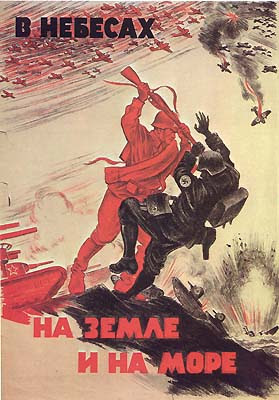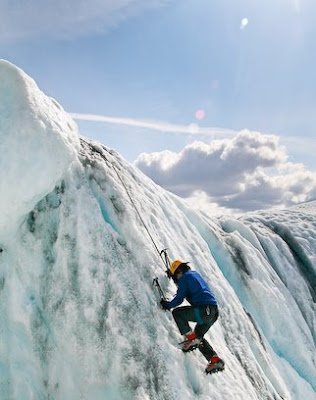 Continued from Part 1 here.Activist:
Continued from Part 1 here.Activist:
Another teaching of the Talmudic sages has it that in the future non-kosher animals will become kosher, and humans will be able to eat any animal they want (
Midrash Shocher Tov, Tehillim 146). On the other hand, we are given to understand in the Messianic era everyone will be vegetarian. Isn't this a contradiction?
As a vegetarian activist, I believe that by promoting vegetarianism, we are bringing people closer to the time when “the lion will lie down with the lamb.” If people are told they can eat any and all animals, isn't this encouraging them to go in the opposite direction?
Vegetarian Chassid:The idea that all species are destined to be kosher doesn't necessarily mean that humans will eat them -- although according to that viewpoint, this would reflect the principle of "elevating the holy sparks" that at present are too far submerged in
gashmiyus, in physicality, for us to reach.
The idea of their becoming "kosher" goes together with a more far-reaching concept in the Torah: the division between the sacred and the profane, good and evil, and more subtly, other basic dualisms such as inner and outer, etc., all exist primarily for the sake of human free will -- so creation should appear to be a davar nifrad, something apart from G-d and His encompassing Oneness.
However, our sages tell us that in the future, "the holiness of Eretz Yisrael will extend to all the earth" (Sifrei on Deuteronomy 1:1, as discussed by Rabbi Nachman in
Likkutei Moharan II, 8), and animals will attain human-like levels of intellect, Jews and gentiles will serve G-d in harmony and compete spiritual accord; the realm of
kedushah, holiness, will no longer be at odds with its opposite, but everything will be transformed to the holy -- everything will become a channel for the divine. This also means that the present division between kosher animals and non-kosher ones will dissolve, and they all will become "kosher," i.e., sanctified in the spiritual sense. In the Zohar's language, the
Sitra Achara, or "Other Side" of creation, will be nullified.
As for your question about how the Torah's permission for us to eat meat seems to lead us away from the goal of a world without killing and strife, we must understand that the unfolding of the tikkun of all creation takes place in stages. And in each stage different conditions exist, which must be addressed in different ways. Thus, in the words of
Koheles (Ecclesiastes), "To everything there is a season . . . a time for war and a time for peace."
As Jewish vegetarians, we must recognize that the slaughter of animals for legitimate human needs is also part of G-d's plan -- and look forward to the day when this stage of creation will come to an end, and humanity will return to the original vegetarian state of the Garden of Eden.
As to whether our adoption of vegetarianism hastens that day, I would say – maybe yes, maybe no. Sometimes taking on things we’re not ready for, or “jumping the gun” in our spiritual practice, can lead to disaster. Rav Kook was worried about this when it came to vegetarianism. In a sense, that’s what Adam and Eve did by eating the fruit of the Tree of Knowledge on Friday instead of on Shabbos (see Rabbi Chaim Vital,
Eitz Chaim 49:3 and elsewhere in the writings of the Arizal). Therefore, personally, I'm not inclined to preach the "vegetarian gospel" to other Jews who don't share my sensitivities. Neither does Rabbi Shear-Yashuv Cohen or Rabbi Jonathan Sacks or most other vegetarian Orthodox rabbis. First, let’s try to keep kosher and learn to eat in moderation, with sanctity. Vegetarianism is a higher level, which is praiseworthy, but which many people might actually resent.
Activist:Given the prohibition in Jewish law to cause harm to an animal (
tza'ar ba'alei chaim), shouldn't Jews adopt ethical vegetarianism?
Vegetarian Chassid:Torah-observant Jews do not embrace ethical vegetarianism, because the Torah does not tell us to do so. On the contrary, in the past it required us to perform certain sacrifices, and it goes to great lengths to detail the Jewish dietary laws, which include the slaughter and consumption of certain animals; it also mandates the use of other animal-derived materials, such as the shofar we are obligated to hear on Rosh Hashanah, the parchments we must use for kosher Torah scrolls, mezuzot, Tefillin, etc., and it permits us to slaughter animals for other basic human needs, such as clothing or medicine or medical research.
Ethical vegetarianism exists in Judaism, but it sort of comes out of "left field" -- as we mentioned above, it is a component of the messianic age, echoing the original vegetarianism of Adam and Eve in the Garden of Eden.
As Jews, we must do what G-d has told us to do to fix this damaged world and our damaged souls through the mitzvos of the Torah, not just out of our own man-made ethical philosophies or moral sensitivities. Therefore, if a Jew is a vegan but doesn't recite the prescribed blessings before and after eating, or cooks on the Shabbos, or consumes produce of a fruit tree less than three years old, or performs certain types of grafting that the Torah forbids, he or she may be a good and sensitive and kind person -- but nevertheless spiritually destroys creation.
The mitzvos are the healing factor, not our personal ethical sensitivities, as noble and praiseworthy as they may be.
Activist:
Is true vegetarianism a recognition that man should not take the life of one of G-d's creations simply to indulge his gastronomic desires?
Vegetarian Chassid:I don't know about that adjective "true." There are many reasons why people elect to be vegetarians. As important as it is, the refusal or reluctance to take life is only one of them.
However, as Jews, we don't regard the consumption of meat as a base indulgence, plain and simple. The Torah permits us to eat meat for many reasons – out of need; or as a concession to desire, hedged around with restrictions; or for the enjoyment of Shabbos and Yom Tov, when it may even be a mitzvah; or for kabbalistic reasons, such as the elevation of the “holy sparks.” Yet as Rav Kook points out, there is something within us that instinctively recoils from killing other creatures, and senses that a system of life that requires one species to eat another cannot be what G-d truly desires for his creation. Therefore, vegetarianism has a certain appeal as an aspect of living in a more perfect, harmonious world. According to many classic commentators, this is what Isaiah means when he states that "the wolf will lie down with the lamb," etc.
Activist:Do you think that vegetarianism helps develop a Jew's spiritual sensitivity?
Vegetarian Chassid:I think that for a spiritual person, vegetarianism may be the result of a more highly developed sensitivity. If this diet has further spiritually beneficial effects on us, I couldn't really say. There are many vegetarians who seem to be extremely hedonistic and "unspiritual" people, whose philosophy might be: "Eat (fruits, whole grains, and vegetables), drink (spring water, plus a little single-malt scotch now and then), and be merry, for tomorrow you die!"
So I would hesitate to say that vegetarianism is intrinsically connected to spirituality. To be edifying, it must exist within a broader view of life and be part of an encompassing spiritual path. It must be the outcome of a genuine feeling of the interconnectedness and holiness of all life. I think that's what Rav Kook envisioned in his writings about vegetarianism and peace.








































